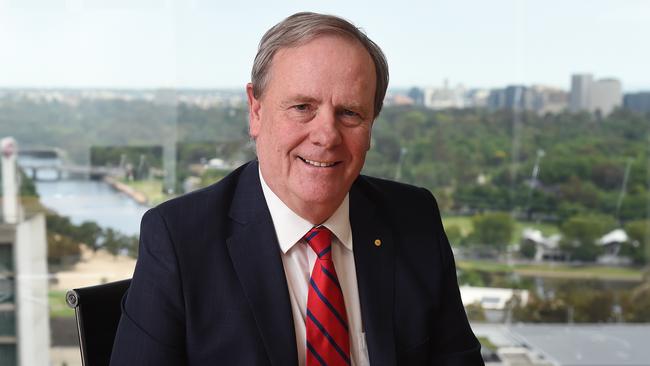Costello dashes hopes for smooth RBA review

While the Future Fund chairman and former treasurer has not hesitated to spar with the RBA in the past, his assessment that the central bank went missing in the initial fight against inflation and has increased the risk of a recession is a heavy blow to the solar plexus.
Costello’s core complaint is that the RBA ignored its mandate of keeping inflation in the 2-3 per cent target range and instead let things rip in search of wages growth, which of course has nothing to do with its mandate.
Specifically, he says the RBA shouldn’t have been waiting for official data in late April to verify that inflation had established a serious foothold.
“If you knew what was going on in the economy, you knew that inflation was starting to build in the March quarter,” Costello told The Weekend Australian.
“Anyone who was alive could have told you that, so (RBA governor Phil Lowe) was forced to move rates immediately in May and again in June, and will be forced to back up again in July and August because inflation has taken off.”
Needless to say, Costello’s intervention comes at a delicate time, as Treasurer Jim Chalmers finalises the terms of reference for the independent review and chooses someone with international clout to lead it.
Names have been bandied about, in particular the former deputy governor of the Bank of England, Paul Tucker.
Tucker’s credentials would make him an ideal candidate.
However, Costello’s intervention has made it abundantly clear that the first genuine review of the RBA since the 1980s will be no easy walk in the park.
For a start, the right balance has to be achieved in the terms of reference.
While some analysis of the RBA’s perceived sins, including its inflation targeting and abandonment of yield curve control last October, is necessary, it shouldn’t be an excuse for an internal witch hunt. The focus should remain firmly on the future so the appropriate structures are in place to enable the RBA to do its job of formulating and implementing monetary policy.



Peter Costello has just disrupted hopes that the bipartisan independent review of the Reserve Bank will be a smooth ride for the new Labor administration.